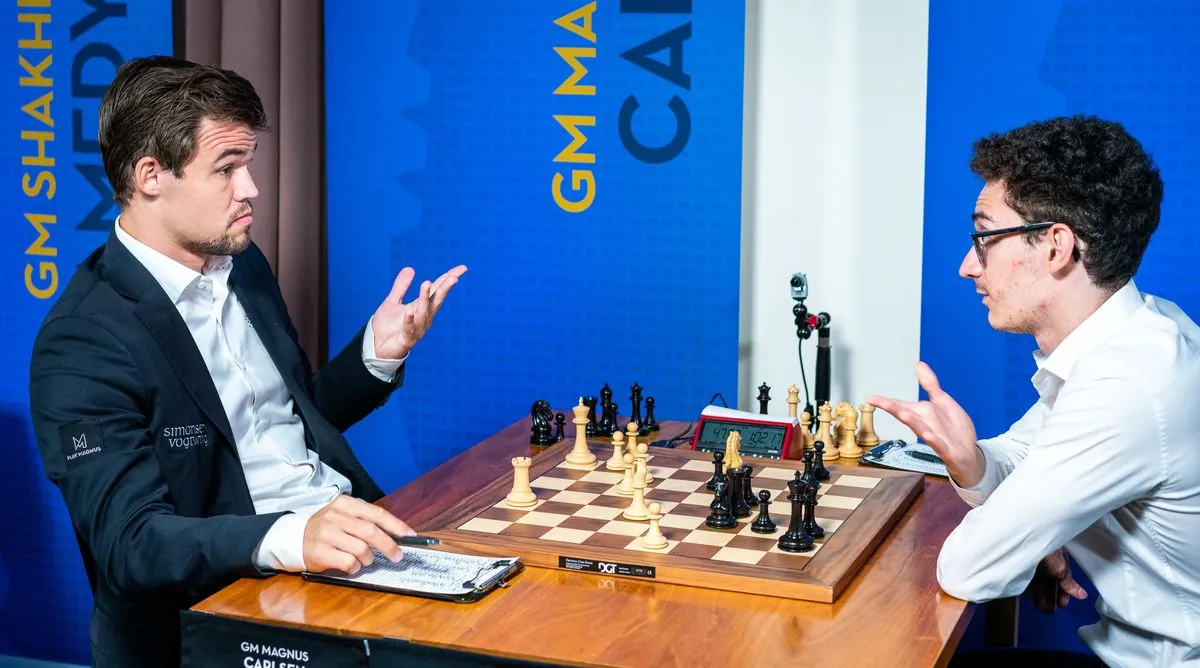Chess World Divided: Russia's Influence Sparks Controversy at Olympiad
International chess faces a critical juncture as a proposal to reinstate Russian and Belarusian federations divides the community. The upcoming vote at the Chess Olympiad in Budapest could reshape the sport's landscape.

The world of international chess finds itself at a crossroads, with a contentious proposal threatening to reignite tensions stemming from Russia's invasion of Ukraine. As 185 nations gather in Budapest for the Chess Olympiad, the sport's most prestigious event, the chess community grapples with a motion that could potentially restore the rights of Russian and Belarusian chess federations.
Arkady Dvorkovich, the current president of FIDE (Fédération Internationale des Échecs), faces mounting pressure as the organization prepares for a crucial vote on September 22, 2024. The proposal, put forward by Kyrgyzstan, a Central Asian ally of Russia, seeks to reinstate the full rights of Russian and Belarusian national chess federations, which have been restricted since Russia's full-scale invasion of Ukraine in February 2022.
The chess world has been deeply divided since the onset of the conflict. FIDE, under Dvorkovich's leadership, initially banned Russian teams, flags, and anthems from competitions, aligning with International Olympic Committee (IOC) guidelines. However, this stance was met with disapproval in Moscow.

The Ukrainian Chess Federation has vehemently opposed the proposal, describing it as showing a "shocking disregard for the ongoing tragedy in Ukraine." Western chess federations, including those from the United Kingdom, United States, and Germany, have also voiced their opposition, arguing that passing the motion would hand a symbolic victory to Vladimir Putin.
Chess holds significant importance in Russian culture and national pride. Recognizing this, Ukrainian President Volodymyr Zelensky appointed Alexander Kamyshin, former Minister of Strategic Industries, as the new president of Ukraine's national chess federation. Kamyshin has framed the struggle for control of international chess as a "challenging and important battle on the international front."
The conflict has taken a tragic toll on the chess community, with 21 Ukrainian chess players reportedly killed in the war. Among them was Artem Sachuk, a former vice-president of the Ukrainian federation and father of two.
"It's clear that Kyrgyzstan is just a proxy for Russia in this instance, and they are clearly aligned with Russia. This can be discerned from the sudden colossal increase in trade between Western countries in Kyrgyzstan that started once sanctions were imposed, and clearly shows that a lot of sanctions busting is going on through the country as well."
FIDE's Russian connections run deep, with Kirsan Ilyumzhinov, a former president of Russia's Kalmykia region, leading the organization for 23 years until 2018. The current president, Arkady Dvorkovich, is a Western-educated former Russian deputy prime minister.
The upcoming vote poses a significant challenge for those opposing the motion. FIDE's one-member-one-vote system gives small federations equal weight to larger ones, potentially favoring the proposal's supporters. Critics argue that this system has been exploited in the past, with allegations of vote-buying to secure favorable outcomes.
Dvorkovich maintains that regardless of the vote's outcome, FIDE will comply with IOC rulings and remain sensitive to international concerns. He emphasizes that chess is a game between individuals, not nations, and that players should not be limited based on nationality.
As the chess world anxiously awaits the September 22 vote, the outcome could have far-reaching consequences for the sport's international standing and its relationship with the broader global community.


































